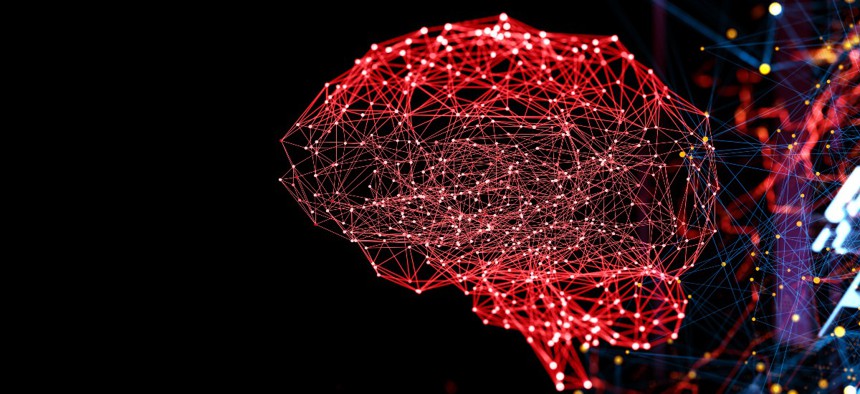49% of Tech Pros Believe AI Poses ‘Existential Threat’ to Humanity, Per Report

MF3d/Getty Images
Others believe artificial intelligence will be a necessary component of most major business strategies in the near future.
Nearly one in two technologists in a recent global survey believe artificial intelligence poses an existential threat to humanity.
The Spiceworks Ziff Davis State of IT survey, which polled 1,400 tech professionals in North America, Europe, Asia and Latin America, found 49% of respondents said innovations in AI could lead to human extinction, mirroring opinions espoused by Tesla founder Elon Musk and theoretical physicist Stephen Hawking.
The report’s authors appear to downplay the risk of human extinction, stating “IT professionals are known to be fans of movies featuring misbehaving AI, such as 2001: A Space Odyssey.” Yet, while 67% of respondents reported AI “will be a mission-critical element” in future business strategies and 62% expect to work alongside intelligent robots or machines in the next five years, it’s clear technologists have reservations about artificial intelligence advancement beyond human catastrophe.
More than half (55%) said AI will create “major data privacy issues,” and another 51% said AI will put IT jobs at risk. Over the past two decades, robots and automated systems have replaced approximately 1.7 million manufacturing jobs, with some reports indicating as many as 20 million manufacturing jobs could be lost to robots by 2030. Conversely, numerous reports suggest AI and automation technologies will create an abundance of jobs in other fields, such as data analytics.
“Not only do IT professionals in companies considering AI believe the technology will be important in the future, our data also suggests AI is ready for prime-time in many real-world scenarios,” the report states. “Top current and planned use cases include analytics to inform business intelligence, automation of tasks (which could help mitigate IT labor challenges), and fraud [or] security intrusion detection.”






